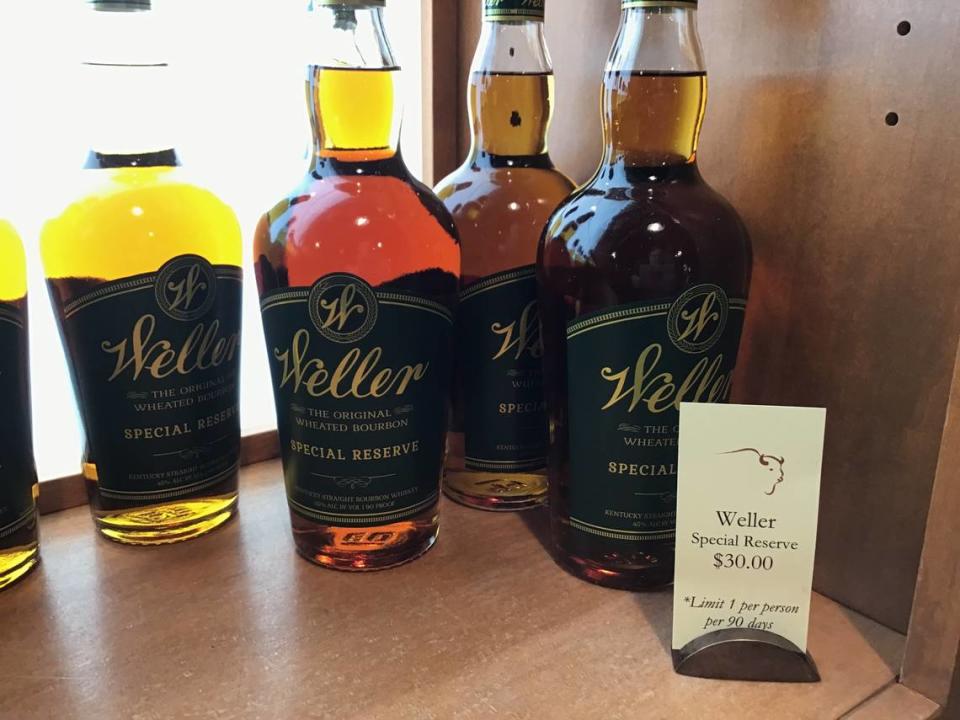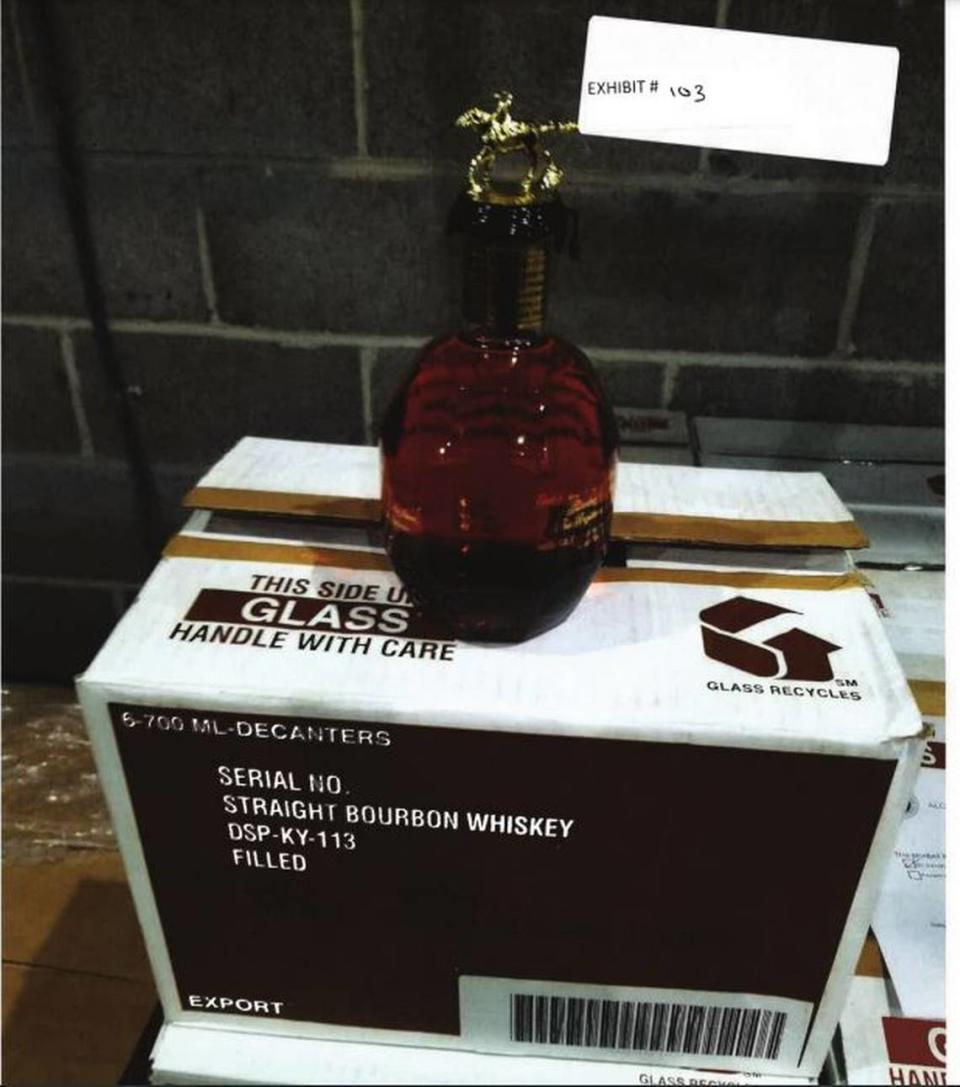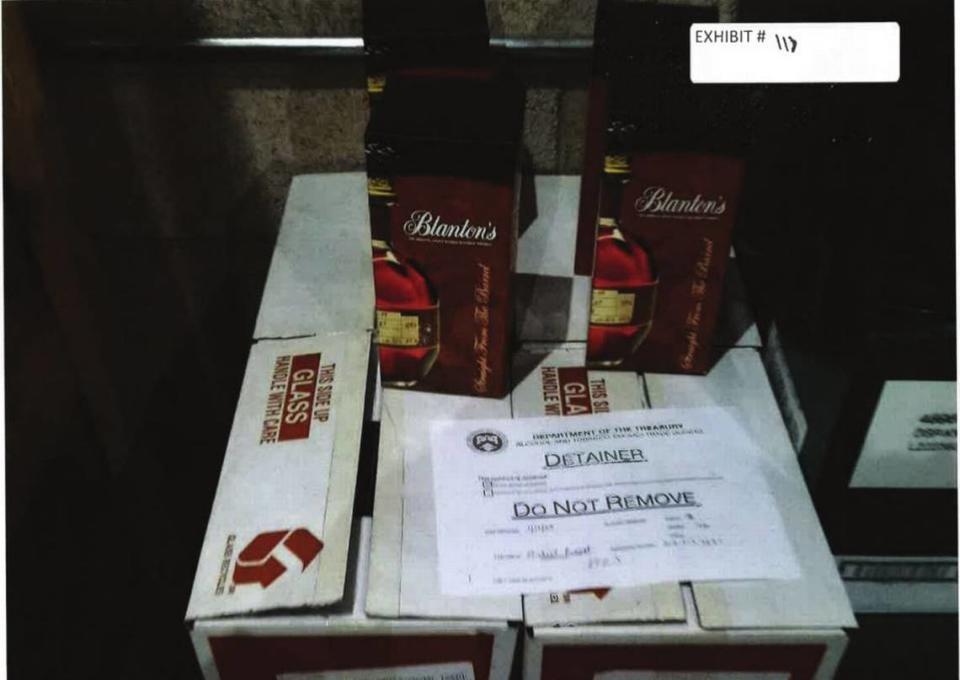Bourbon CEO: Kentucky vintage law fueling ‘secondary, smuggled & counterfeit’ market
The head of Sazerac, which owns Buffalo Trace and Barton 1792 distilleries in Kentucky, called for changes in the state’s alcohol regulations to tighten sales under the Vintage Distilled Spirits law.
Mark Brown, president and CEO of Sazerac, in a statement to the Herald-Leader, urged lawmakers “to review the law and modify the law to permit only pre-metric era (1980) bottles thereby reinforcing the original concept and intent.”
After reviewing a database of the top 25 sellers compiled by the Herald-Leader from state sales records, Brown said via an emailed statement that he was concerned the 2017 law “has become a channel for secondary market, smuggled and counterfeit goods rather than its well-intentioned original purpose – to surface and make available very old and unique bottles of spirits.”
Under Kentucky’s Vintage Distilled Spirits law, sales over the last five years skew heavily in one direction: Many involved Sazerac-made brands including Weller, Blanton’s, Pappy Van Winkle, Eagle Rare, EH Taylor, George T. Stagg, Stagg Jr., Buffalo Trace, Bourbon Cream, Elmer T. Lee, Old Charter and Rock Hill Farms.
The most common label sold was Weller in various sizes and forms, followed by Blanton’s. Of the more than 5,000 bottles sold by the top 25 sellers, more than half were versions of those two brands, including some only sold overseas.

“In reviewing our brands that have been recorded in the program, we note that most fit the ‘hard to find’ category as opposed to ‘vintage spirit’ category,” Brown said.
“Our concern is that since these bottles are moving through informal channels, it is impossible to know whether they are authentic bottles or not,” he said. “We do know that some bottles have been re-imported into the United States without proper label approval and taxes being paid.”
In January, alcohol officials in Kentucky and in Washington D.C. raided three Justins’ House of Bourbon stores. No charges have been filed but Justins’ owners on May 10 agreed to admit to two violations of D.C. alcohol regulations and pay $3,000 in fines. It is unclear what further legal action may be pending after a months-long investigation involving Kentucky, D.C., Pennsylvania, Texas and federal alcohol regulators.


The D.C. raid found hundreds of potentially illegally transported bottles of bourbon and federal officials “voluntarily detained” hundreds of bottles of Blanton’s that may have been improperly imported from the Netherlands, which was identified in documents as a potential source of counterfeit bottles. In mid-May, the owners of Justins’ House of Bourbon told Whisky Advocate magazine that the bottles had been released and “cleared for commerce.” They did not respond to requests for comment.
A federal investigator, who said an agent already was working in Kentucky on counterfeit Sazerac bourbons, told D.C. officials: “Sazerac product is more lucrative than heroin right now.”
Kentucky Alcohol Beverage Control officials also seized “numerous bottles of bourbon and other items of evidence were seized associated with suspected improper purchasing and sale of these products.”
Separately in New York, one of the state’s oldest wine and liquor stores agreed to pay a $100,000 fine after the retailer was found to have sold fake bottles of Col. E.H. Taylor Four Grain Bourbon for about $1,000 each. The counterfeit was exposed by “Inside Edition,” which purchased a bottle and sent it to Buffalo Trace, which confirmed that the whiskey was not genuine. According to the store, the bottles were purchased from private collectors for resale.
“In light of recent media coverage concerning sales of counterfeit spirits bottles, we continue working hard to underscore the vital importance of the formal and regulated supply chain to ensure that when a spirits consumer goes into a store to purchase a bottle of spirits that they do not have to think twice about the authenticity of the bottle they are purchasing,” Brown said in the statement. “The current regulated system, which provides a clear chain of custody for a given bottle moving through the supply chain, while not perfect, continues to serve consumers well.”
Brown said that Sazerac spends more than $1 million a year “shutting down criminals, counterfeiters, re-fillers and other bad actors so that consumers can continue to enjoy a great and authentic bottle of spirits.”
Is it enough? Some collectors are doubtful.
Adam Herz, a whiskey collector, has documented on his Facebook page “Herz Serious Whiskey Info” several examples of how fake bottles of highly sought bourbons are made.
Herz has criticized Sazerac’s anti-counterfeiting efforts as inadequate. In March, he posted examples of Weller and Old Rip Van Winkle where the labels had been swapped off expensive empty bottles and placed onto cheaper bourbons.
“This simple but powerful counterfeiting technique uses authentic, unopened bottles. It’s a unique type of fake whiskey because the “mark” is buying a factory sealed bottle with unadulterated spirit inside — it’s just not the product on the label,” Herz wrote.


